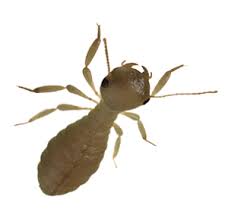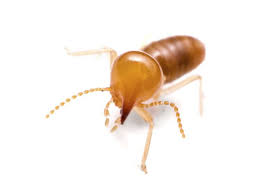Getting My Termite Control Charges To Work
'' The development of autonomous robots capable of constructing intricate constructions without human assistance has been inspired by the intricate mounds that termites construct.222 These robots operate independently and can proceed by themselves on a tracked grid, capable of climbing and lifting up bricks. Such robots could possibly be useful for future projects on Mars, or even for building levees to prevent flooding.223.
Termites use sophisticated means to control the temperatures of their mounds. As discussed above, the form and orientation of the mounds of this Australian compass termite stabilises their internal temperatures during the day. Since the towers heat up, the solar chimney effect (stack effect) creates an updraft of air within the mound.224 Wind blowing across the tops of the towers enhances the circulation of air throughout the mounds, which also include side vents in their construction.
Especially in Africa, the stack effect has turned into a popular means to achieve natural ventilation and passive cooling in modern buildings.224.
The smart Trick of Termite Control Chemical That Nobody is Talking About
The Eastgate Centre is a shopping centre and office block in central Harare, Zimbabwe, whose architect, Mick Pearce, utilized passive cooling inspired by that used by the regional termites.226 It was the first major building exploiting termite-inspired cooling techniques to attract international attention. Other such buildings include the Learning Resource Center in the Catholic University of Eastern Africa and the Council House 2 building in Melbourne, Australia.224.
Few zoos hold termites, on account of the problem in keeping them captive and into the reluctance of authorities to permit potential pests. One of those few that do, the Zoo Basel in Switzerland, has two thriving Macrotermes bellicosus populations resulting in an event very rare in captivity: the mass migrations of young flying termites.

Fascination About Termite Control Chemical
In Malaysia, Singapore and Thailand, termite mounds are commonly worshiped among the people.229 Abandoned mounds are seen as constructions created by spirits, believing a local guardian dwells within the mound; that is known as Keramat and Datok Kong. In urban areas, local residents construct red-painted shrines over mounds which have been abandoned, in which they pray for good health, protection and luck.229.
It's unknown whether the termite was male or female. When it was a female, the body length would be much greater than 25 millimetres when mature.

Lobeck, A. Kohl (1939). Geomorphology; an Introduction to the Study of Landscapes (1st ed.) . University of California: McGraw Hill Book Company, Incorporated. pp. 431432. ASIN B002P5O9SC.
The 7-Minute Rule for Termite Control Charges
Cleveland, L.R.; Hall, S.K.; Sanders, E.P.; Collier, J. (1934). "The Wood-Feeding Roach Cryptocercus, its own protozoa, and the symbiosis between protozoa and roach". Memoirs of the American Academy of Arts and Sciences. 17 (2): 185382. doi:10.1093/aesa/28.2.216.
McKittrick, F.A. (1965). "A contribution to the understanding of cockroach-termite affinities". you can try this out Annals of the Entomological Society of America. 58 (1): 1822. doi:10.1093/aesa/58.1.18. PMIDÂ 5834489.
Ware, J.L.; Litman, J.; Klass, K.-D.; Spearman, L.A. (2008). "Relationships among the significant lineages of Dictyoptera: the effect of outgroup selection on dictyopteran tree topology". Systematic Entomology. 33 (3): 429450. doi:10.1111/j.1365-3113.2008.00424.x.
Get This Report on Termite Control Charges
a b Inward, D.; Beccaloni, G.; Eggleton, P. (2007). "Death of an order: a comprehensive molecular phylogenetic study confirms that termites are eusocial cockroaches". Biology Letters. 3 (3): 3315. doi:10.1098/rsbl.2007.0102. PMCÂ 2464702. PMIDÂ 17412673.
Eggleton, P.; Beccaloni, G.; Inward, D. (2007). "Response to Lo et al.". Biology Letters. 3 (5): 564565. doi:10.1098/rsbl.2007.0367. PMCÂ 2391203.
Ohkuma, M.; Noda, S.; Hongoh, Y.; Nalepa, C.A.; Inoue, T. (2009). "Inheritance and diversification of symbiotic trichonymphid flagellates from a common ancestor of termites and the cockroach Cryptocercus". Proceedings of the Royal Society B: Biological Sciences. 276 (1655): 239245. doi:10.1098/rspb.2008.1094. PMCÂ 2674353. PMIDÂ 18812290.

More About Termite Control Charges
Lo, N.; Tokuda, G.; Watanabe, H.; Rose, H.; Slaytor, M.; Maekawa, K.; Bandi, C.; Noda, H. (June 2000). "Evidence from several gene sequences indicates that termites evolved from wood-feeding cockroaches". Current Biology. 10 (13): 801814. doi:10.1016/S0960-9822(00)00561-3. PMIDÂ 10898984.
Grimaldi, D.; Engel, M.S. (2005). Evolution of the insects (1st ed.) . Cambridge: Cambridge University Press. p. 237. ISBN 978-0-521-82149-0.
Klass, K.D.; Nalepa, C.; Lo, N. (2008). "Wood-feeding cockroaches as models for termite evolution (Insecta: Dictyoptera): Cryptocercus vs. Parasphaeria boleiriana". Molecular Phylogenetics & Evolution. 46 (3): 809817. doi:10.1016/j.ympev.2007.11.028. PMIDÂ 18226554.